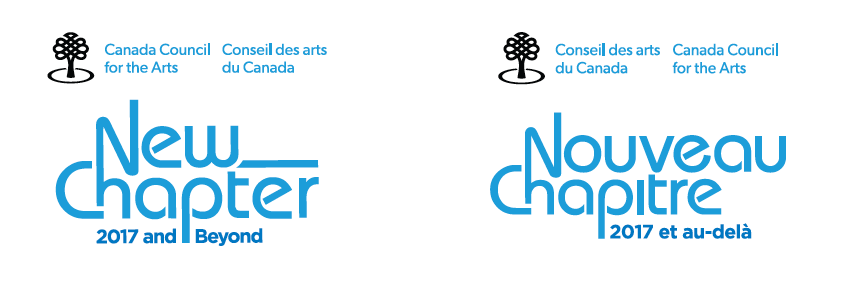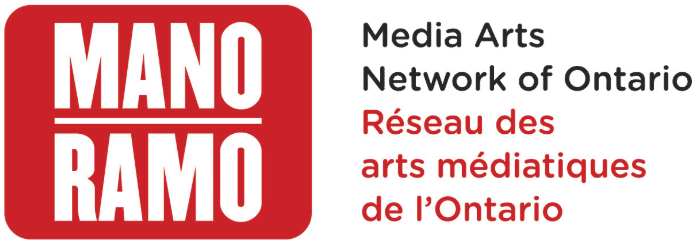Artist and educator Deanna Bowen and the Media Arts Network of Ontario are seeking papers for a, yet untitled, publication that documents the historical and contemporary contributions that First Nations, Métis, and Inuit (FNMI), racialized, differently abled, or LGBTQ cultural producers have made to the media arts in Canada. Instead of anti-canonic, we see this project as one that can map an alternate set of discourses, practices and views across the field since the 1970s. Though not exhaustive, our goal is to produce a book of national scope that addresses the ways in which individual and collective media arts practitioners outside of the established white experimental film/video canon have endeavored to create time based works in (often) less than ideal creative climates. We also strive to examine the development and evolution of public funding policies that have helped and/or hindered the creation of media arts centres, curatorial collectives, and archival initiatives.
For all artists, the availability of institutionally validated texts engaging their work is key for market access. This is heightened for “marginalized” media artists who are primarily documented in minor accounts in broad histories focused on white mainstream artists. Our call for papers reflects our goals to address these omissions and increase the visibility of FNMI, racialized, differently abled, or LGBTQ Canadian writers discussing arts and culture whilst simultaneously and proactively championing challenging viewpoints outside of mainstream Canadian art criticism. Given the scarcity of existing texts of this nature, this book must be viewed as a beginning. And while printed books are an important contribution for libraries, students and scholars, we believe that publishing essays about media art with static images and text is particularly limiting and counterintuitive. Our publication will be a larger and more open-ended web project that cannot be contained to the printed page.
Selected chapters, papers and projects will be published in book format in an edition of 1000 print copies and on a website containing all texts along with select media clips from the works they reference. We believe this approach to be a more dynamic, immersive publishing strategy that allows writers to be creative with their texts by including video clips, still images, audio files and web links. The intent with the site is to recognize and circumvent the incompleteness of any book to document the activity of FNMI, racialized, differently abled, or LGBTQ media artists within the Canadian frame by producing a discursive space that highlights evolving media arts histories over time.
Possible topics can include, but are not limited to:
- Historical and contemporary representations and omissions of FNMI, racialized, differently abled, or LGBTQ peoples in media art
- Analog or digital archives of regional media arts practices, organizational histories and local media arts chronologies
- Previously published articles, defunct publications and artist zines about media arts practices
- Case studies of archival initiatives by individuals, organizations or festivals
- Profiles and interviews of current/past under documented artists, collectives, organizations or festivals
- Action plans for decolonizing the media arts sector in Canada.
- Resource scarcity and the demise and/or creation of FNMI, racialized, differently abled, or LGBTQ media arts collectives, organizations and festivals
- Past/current restrictive funding policies and systemic exclusions
- Analysis of equity funding models
- Disruptions of the white, colonial, gendered, heteronormative, “able-bodied” gaze
- Examinations of political difference in diaspora media artist communities
- Token inclusions in the white experimental film/video canon
- Media arts practices that remedy geographical, political, or cultural isolation
- Experimental documentary/mapping strategies
- Media enhanced performance
- Expectations of performed trauma and alterity
- Memory, truth and the digital moving image
- Media arts practices as tool for political protest
- Censorship case studies
- The evolution of media arts technology and its impact on knowledge sharing
- Theoretical works on the history, evolution, and aesthetics of experimental media arts works
Selected writers will be remunerated. The deadline for submitting paper proposals is July 14, 2017.
Deadline for final papers is March 1, 2018.
Please send a 300–500 word abstract and title, as well as your CV, address, telephone number, email address to: publications@mano-ramo.ca
About the Editor:
Deanna Bowen is a Toronto based artist and educator whose artistic/educational practice examines history, historical writing and the ways in which artistic and technological advancements impact individual and collective authorship. She is a 2016 Simon Guggenheim Foundation Fellow and recipient of the 2014 William H. Johnson Prize. She has worked for the Images Festival of Film, Video & New Media, InterAccess Electronic Media Arts Centre, the Canadian Women Studies Journal, the Liaison of Independent Filmmakers of Toronto, and Point of View Magazine. She frequently presents her research, writings and artworks about the connections between race, history, and contemporary arts production in international publications, graduate seminars and academic conferences in Humanities disciplines in and outside of the arts. Recent writings and art works have been published in Canadian Art (forthcoming), Towards an African-Canadian Art History: Art, Memory, and Resistance (forthcoming), TOPIA: Canadian Journal of Cultural Studies, PUBLIC Journal, North: New African Canadian Writing — West Coast Line, and FRONT Magazine.
MANO’s staff includes director Ben Donoghue who previously served as executive director at the Liaison of Independent Filmmakers of Toronto where in addition to completing major capital and organizational projects carried out four significant commissioning projects the largest involving thirty artists. He has also worked on numerous books and periodicals over his career including Explosion in The Movie Machine and MICE Magazine. MANO’s second staff member is Adriana Rosselli who has worked as an administrator for organizations in multiple disciplines including aluCine Film Festival and Aluna Theatre.
MANO itself has conducted three provincial and one national media arts conference including IMAA.ON.Fire in 2010, which hosted 300 artists and cultural workers over five days of programming. MANO has extensive experience administering projects alongside its ongoing programs and draws on a dedicated board of 11 cultural workers from across Ontario, including some of the most experienced in the field.
This is one of the 200 exceptional projects funded through the Canada Council for the Arts’ New Chapter program. With this $35M investment, the Council supports the creation and sharing of the arts in communities across Canada.
Ce projet est l’un des 200 projets exceptionnels soutenus par le programme Nouveau chapitre du Conseil des arts du Canada. Avec cet investissement 35 M$, le Conseil des arts appuie la création et le partage des arts au cœur de nos vies et dans l’ensemble du Canada.

